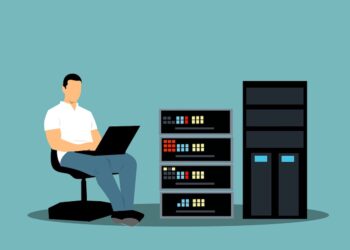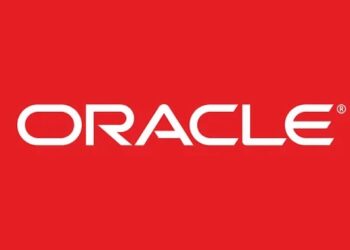In today’s competitive business environment, adopting technologies like the cloud is no longer optional; it is essential for survival and growth. From a startup to a big enterprise, the cloud is everywhere. Major technologies like AI, big data, and advanced analytics, integration depend on cloud platforms. Cloud computing has become a strategic enabler of digital transformation. Below is the list of 15 major cloud service providers in the world.
List of 15 major cloud service providers
1- Amazon Web Services (AWS)
AWS is the global market leader in cloud computing. It was launched in 2006, AWS pioneered the Infrastructure-as-a-Service (IaaS) model, and today offers 200+ fully featured services covering compute, storage, networking, databases, analytics, AI/ML, IoT, and enterprise applications.
Pros:
- High-performance compute with 750+ instances, scalable storage, 143 security certifications, free tier options, and pay-as-you-go pricing.
- AWS is a market leader with ~31% market share; It offers 200+ services (EC2, S3, Lambda).
- Extensive global infrastructure (30+ regions, 100+ availability zones).
- Robust ecosystem with third-party integrations and enterprise-grade tools.
- Highly scalable for startups to large enterprises.
Cons:
- A complex pricing structure can be costly without optimisation.
- A steep learning curve for beginners due to the vast array of service offerings.
- Heavy reliance on proprietary AWS services can make multi-cloud strategies challenging.
For many enterprises, AWS is the default choice for cloud adoption due to its maturity, global presence, and innovation. However.
2- Microsoft Azure
Microsoft Azure is the second-largest cloud platform globally. It is mainly popular with enterprises and governments because of its strong hybrid cloud approach, seamless integration with Microsoft’s Office 365, Dynamics, Teams and broad global infrastructure.
Pros:
- Strong hybrid cloud capabilities, seamless integration with Microsoft products (Office 365, Windows Server).
- 64 regions, 126 availability zones, extensive global reach.
- Latest AI and security features, as well as partnerships with Oracle and VMware.
Cons:
- Higher costs for non-Microsoft workloads.
- Occasional service outages have been reported in recent analyses.
3- Google Cloud Platform (GCP)
Google Cloud Platform (GCP) is one of the top three global cloud service providers, known for its strength in data analytics, AI/ML, and cloud-native services.
Pros:
- It offers services at competitive costs and offers flexible discounts to its users.
- Leader in AI/ML (Vertex AI) and data analytics tools.
- Open-source contributions (e.g., Kubernetes) enhance interoperability.
Cons:
- Smaller market share (~12%) and fewer services than AWS/Azure.
- Limited enterprise adoption compared to competitors.
4- Alibaba Cloud
Alibaba Cloud (Aliyun), the cloud computing arm of Alibaba Group, is the largest cloud service provider in China and the Asia-Pacific (APAC) region, and consistently ranks among the top five cloud service providers globally.
Pros:
- Dominant in Asia-Pacific, especially China, with 30 regions and 89 availability zones.
- Strong e-commerce and digital solutions (e.g., payment systems).
- Cost-effective for Asia-based operations.
Cons:
- Alibaba has limited global presence outside the Asia regions.
- Regulatory challenges for non-Chinese companies due to the data localisation rule.
5- Oracle Cloud Infrastructure (OCI)
Oracle Cloud Infrastructure (OCI) has emerged as one of the fastest-growing cloud providers, positioning itself as a serious challenger to the hyperscalers (AWS, Microsoft Azure, Google Cloud). It provides a full suite of services across IaaS, PaaS, SaaS, and DaaS.
Pros:
- High-performance computing for enterprise applications and databases.
- Consistent pricing across regions, cost-competitive.
- 47 public cloud regions, strong hybrid cloud support.
Cons:
- Smaller ecosystem compared to AWS/Azure.
- Less suitable for non-Oracle software users.
6- IBM Cloud
IBM Cloud is positioned as a hybrid and multi-cloud leader in the market with security, compliance, and regulatory demands. It is very popular in regulated sectors like banking, healthcare, government, and manufacturing. It holds ~4% market cloud market share, with specialisation in hybrid cloud and security for regulated industries.
Pros:
- Leader in hybrid cloud and security for regulated industries (finance, healthcare).
- Red Hat acquisition boosts multi-cloud and open-source capabilities.
- Over 170 services with a focus on compliance.
Cons:
- Higher costs for SMBs.
- Less intuitive UI compared to competitors.
7- SAP Cloud
SAP Cloud, often called SAP Business Technology Platform – BTP, is the cloud offering from SAP SE, a German software company. SAP is best known for its ERP (Enterprise Resource Planning) systems. Its cloud strategy focuses on delivering SaaS business applications, platform services, and industry-specific solutions. SAP Cloud runs on its own data centres plus partnerships with hyperscalers like AWS, Azure, and GCP.
Pros:
- Deep enterprise process expertise.
- Strong integration with existing SAP systems (on-prem + cloud).
- Industry-specific solutions that many rivals lack.
- Partnerships with major hyperscalers offer flexibility to their clients.
Cons:
- It can be complex and costly compared to newer cloud companies.
- Slower adoption among smaller businesses, with a major focus on large enterprises.
- Migration from legacy on-prem SAP ERP to S/4HANA Cloud can be challenging.
8- Tencent Cloud
Tencent Cloud is the cloud department of the Tencent Holdings company. It is one of the major growing cloud service providers in Asia.
Pros:
- It has a strong presence in the Chinese market, ideal for market entry.
- It supports digital engagement (e.g., WeChat integration).
- Scalable infrastructure for global enterprises.
Cons:
- Limited global reach compared to hyperscalers.
- Language and regulatory barriers for non-Chinese users.
9- Digital Ocean
Digital Ocean is a developer-friendly cloud platform. Founded in 2011 and headquartered in New York. It is known for its straightforward infrastructure solutions, including virtual machines (Droplets), managed Kubernetes, databases, and storage services.
Pros:
- Developer-friendly with simple UI and transparent pricing.
- Affordable for startups/SMEs, managed Kubernetes.
- 15 data centres across 9 regions, reliable for small-scale workloads.
Cons:
- Limited advanced enterprise features.
- Smaller global footprint compared to hyperscalers.
10- OVHcloud
OVHcloud is a France-based cloud service provider and one of Europe’s leading players in the cloud market.
Pros:
- It has a strong European presence (37 data centres, 9 countries).
- Cost-effective private and bare-metal cloud solutions.
- GDPR-compliant, ideal for European businesses.
Cons:
- Limited global scalability compared to AWS/Azure/GCP.
- Fewer advanced AI/ML tools.
11- Linode (Akamai)
The company was founded in 2003 as a U.S.-based cloud hosting provider. It specialises in Linux-powered virtual machines and infrastructure services. Linode was acquired by Akamai Technologies in 2022.
Pros:
- It is developer-focused and offers competitive pricing and high-performance IaaS.
- Integration with Akamai’s CDN and security services.
- 14 regions, simple pay-as-you-go model.
Cons:
- It has limited enterprise-grade features.
- Smaller scale compared to top-tier providers.
12- Salesforce
Salesforce is one of the leading cloud-based platforms globally, best known for pioneering Software-as-a-Service (SaaS) in customer relationship management (CRM) with a 99.99% uptime SLA.
Pros:
- Industry-leading SaaS for CRM and customer engagement.
- 99.99% uptime SLA, 10 global data centres.
- Gartner-recognised for CRM excellence.
Cons:
- Focused solely on SaaS, not IaaS/PaaS.
- Expensive for non-CRM use cases.
13- VMware Cloud
VMware Cloud is a leading player in the hybrid and multi-cloud space. VMware Cloud is delivered through partnerships with AWS, Microsoft Azure, Google Cloud, IBM, Dell Technologies, and others, enabling organisations to deploy and manage consistent VMware environments across private, public, and edge locations.
Pros:
- VMware offers seamless multi-cloud management (AWS, Azure, GCP integration).
- It also supports over 4,200 cloud providers, making it ideal for hybrid cloud setups.
- It has modernised legacy infrastructure.
Cons:
- Complex setup for smaller organisations.
- Higher costs for non-VMware environments.
14- Cloudflare
The company, Cloudflare, started as a content delivery network (CDN) and security company, but it has evolved into a global cloud platform.
Cloudflare operates one of the largest edge networks in the world, spanning over 310+ cities in 120+ countries (as of 2025).
Pros:
- Excellent CDN and DDoS protection services.
- It offers fast content delivery.
- Cost-effective for web security and performance.
Cons:
- Limited to CDN and security, not a full cloud platform.
- Less suitable for compute-heavy workloads.
15- CoreWeave
Founded in 2017 as Atlantic Crypto, CoreWeave initially focused on Ethereum mining. By late 2019, it pivoted into cloud computing.
Beginning with just a handful of U.S. data centres, CoreWeave has since expanded globally, reaching 13 centres in 2024 and about 32 by 2025.
Pros:
- It specialises in AI/ML with Nvidia GB200 and Blackwell Ultra GPUs.
- $7B data centre expansion, high-performance compute.
- Acquisition of Weights & Biases enhances AI capabilities.
Cons:
- Niche focus on AI, not suitable for general-purpose workloads.
- Limited global presence compared to hyperscalers.




















